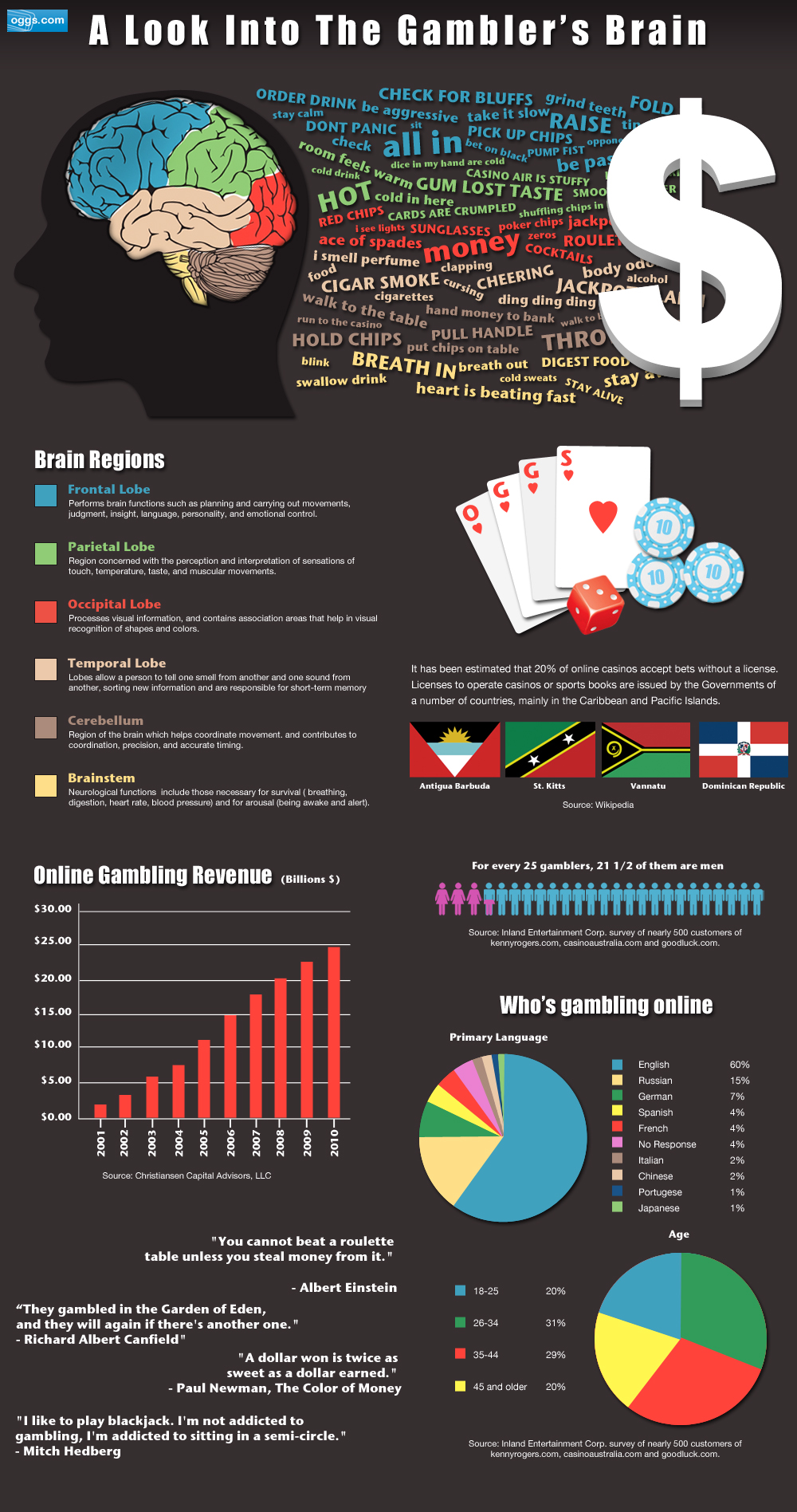The House Always Wins: World Casino Takings

Please note that we are not authorised to provide any investment advice. The content on this page is for information purposes only.
17 June 2011.
Casinos. Where dreams of becoming an overnight millionaire are made – and mortgage payments are broken. The house always wins. But it doesn’t seem that way, by design. The poker-faced dealers hardly look like sharks and the only people having a good time it seems, are the customers. Who would know their life savings were disappearing down the little black hole in the corner of the roulette table?
17 June 2011.
Casinos. Where dreams of becoming an overnight millionaire are made – and mortgage payments are broken. The house always wins. But it doesn’t seem that way, by design. The poker-faced dealers hardly look like sharks and the only people having a good time it seems, are the customers. Who would know their life savings were disappearing down the little black hole in the corner of the roulette table?
Casinos are glamourized, popularized and highly addictive. In America alone, problem gambling affects more than 15 million people. And the economics of it all? Well according to PriceWaterHouse Coopers, the global casino industry is predicted to be worth $120 billion in 2011, up from $100 billion in 2007.
And the Asia Pacific region is leading the growth, growing at a rate of 15 percent per year, compared to 2 percent growth in Europe and 7 percent in the US.
The US is the top, making up $58 billion of world casino revenues, followed by $41.2 billion in Asia Pacific, $16.5 billion in Europe, $4 billion in Canada and $594 million in Latin America.
Now, when it comes to top casino markets, Macau leads the way with 33 casinos raking in $28.4 billion. Las Vegas is behind with $10 billion and in third place, the latest addition to the casino industry: Singapore with $5.5 billion. And the Lion City is set to overtake Las Vegas for the No.2 spot.
Shares of Las Vegas Sands (LVS), the operator of the Palazzo and Venetian resorts, are down 1% this week on news Singapore’s tourism authority will block the company from selling the shopping mall at its casino in the country until after March 2017. The statement from the tourism authority comes just a week after Las Vegas Sands said it was hoping to sell the mall within two or three years for about $4 billion to recoup some of its investment in the property, Reuters reported.
Viva Las Singapore
The Marina Bay Sands reports:
Singapore is set to become the world’s second largest gambling hub in dollar value, with forecast earnings of $6.4 billion this year overtaking Las Vegas which is projected to earn $6.2 billion. Making this projection at a gaming conference in Macau, the American Gaming Association president Frank Fahrenkopf said Singapore’s two casinos had exceeded expectations and turned the city state into Asia’s second global gaming hub.
Las Vegas, which lost its No. 1 spot to Macau in 2006, earned $5.8 billion in casino revenue last year, but is a mature market with little potential for big growth. Fahrenkopf made the prediction at the start of a gambling industry conference in Macau.
[quote]“It’s going to be an extremely good year,” in Singapore and Macau, he said. Casino revenue in Macau will probably grow 25 to 50 percent this year, Fahrenkopf said.[/quote]Gambling revenue in Macau, the world’s most lucrative gambling market, hit $23.5 billion last year and monthly revenue has grown by at least 42 percent from February to May. Fahrenkopf warned that Macau faces several problems that could put a damper on continued growth, including a labor shortage and lack of infrastructure as well as a government cap on the number of new gambling tables until 2013.
But Macau is expected to remain the top gaming hub in the world, with its more than three dozens of casinos having earned $23.5 billion in revenue last year. Media reports said Las Vegas’ popularity was declining due to America’s ailing economy and stiff competition from Macau and Singapore casinos.
Singapore is also known as a safe haven for tourists in South East Asia but Singapore has been concerned the introduction of casinos into its city state may invite trouble. It’s still to early to tell.
In a story from BusinessWeek:
Singapore’s per-capita crime rate of 684 per 100,000 people in 2008 was about a third that of New York City, Law Minister K. Shanmugam said last year. The “handful” of casino-linked cases so far hasn’t contributed “significantly” to the Singapore Subordinate Courts’ caseload.
Prime Minister Lee rejected a proposal for casinos in 2002 when he was heading a committee to seek growth strategies for Singapore. He said they could lead to “undesirable activities” such as money laundering, illegal lending and organized crime.
Three years later, Lee justified the decision to allow gambling by saying the country had “no choice but to proceed” with the casinos to keep attracting tourists. Tourism receipts account for about 5 percent of the economy. The city aims to boost revenue to S$30 billion by 2015 from S$12.8 billion last year, the Singapore Tourism Board said.
And the casino is a big part of that plan for growth in Singapore.
[break]
Online Gambling Revenues
So what about online gambling?
Internet gambling is the latest trend that has become a big hit among people from all walks of life, young and old alike. People who have the passion for casino gambling have found it more convenient to play casino gambling games in the virtual casinos. The desire to have fun and make money is so intense that people become too much addicted to internet casinos.
Internet gambling statistics revealed that the trend of virtual gambling will continue to rise.
It’s a huge global market in itself and if we think about the fact world casinos are expected to make $120 billion this year; online gambling raked in $25 billion in 2010 and has been growing exponentially since 2001.
Liz Zuliani, EconomyWatch
Source: Oggs





